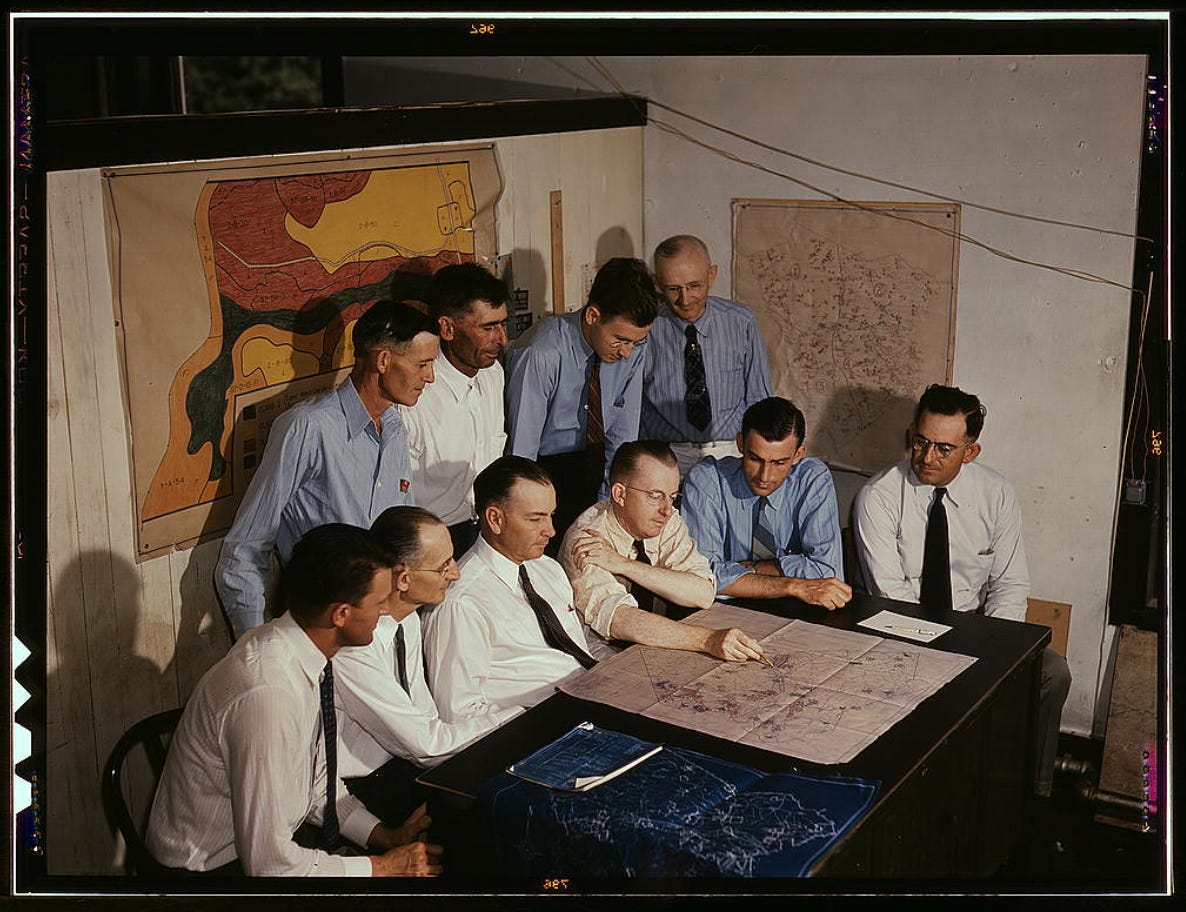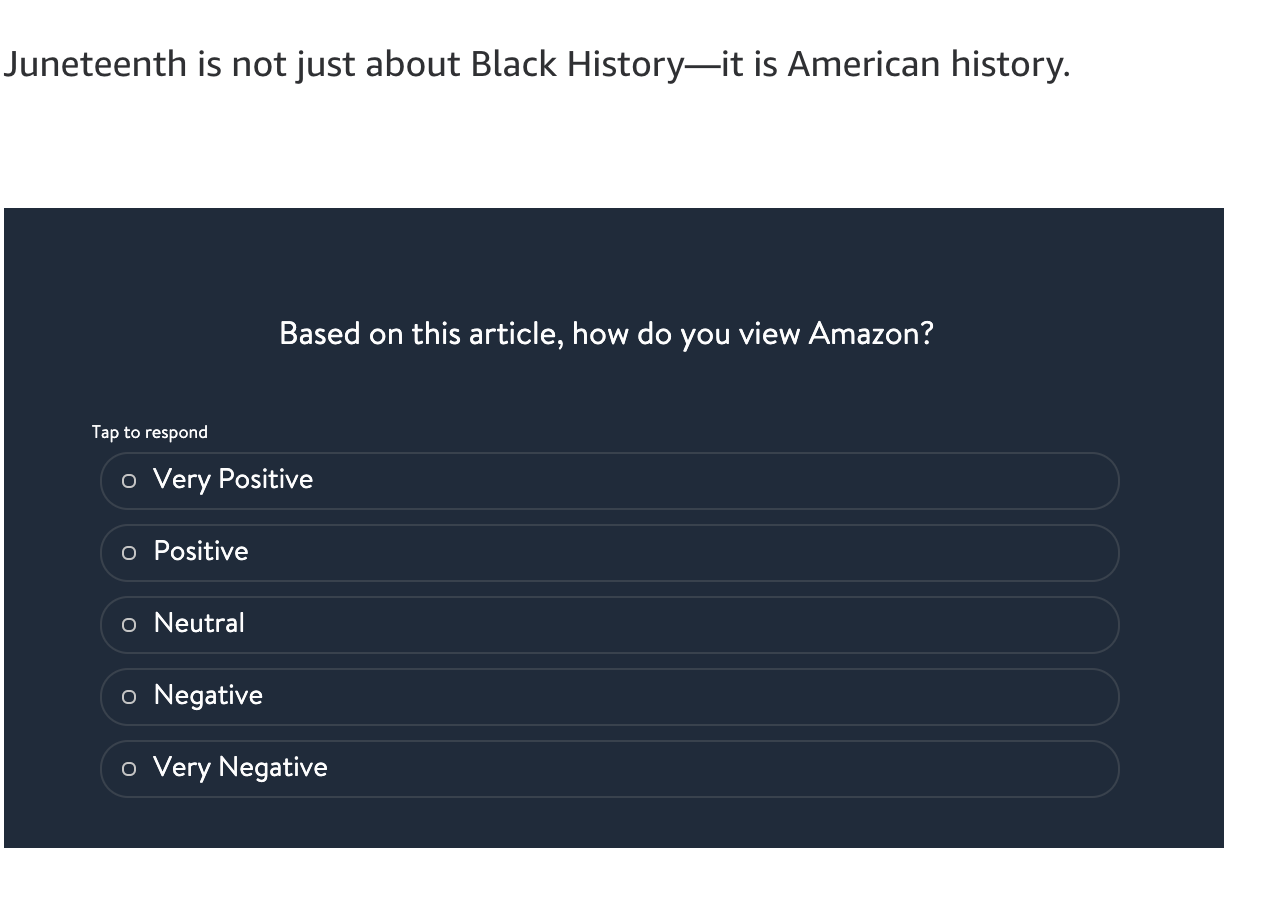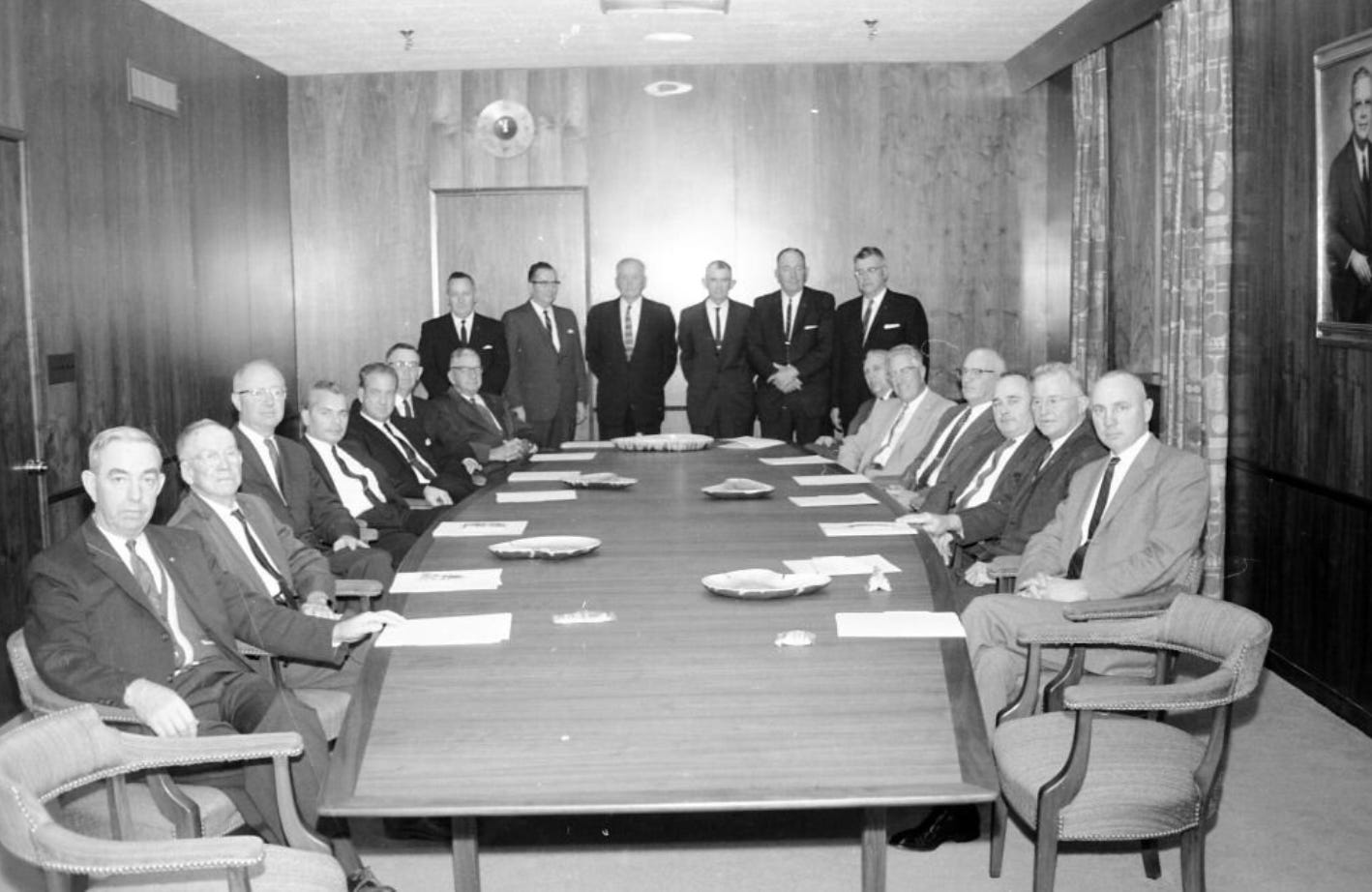"Our organizational commitment..."
On trainings and statements and the assurance that nothing will ever change

I recently read an article about Juneteenth. It says all the right things!
Today, Juneteenth commemorations are held annually to mark the end of slavery in the U.S. through celebration, education, and advocacy. However, this celebration is complex. While rejoicing in progress, we must continue to educate ourselves about our history to help guide our future. We honor those who fought, endured, and continue to persevere in the fight for equality. We celebrate with the awareness that advocacy is still necessary in America's pursuit of equality and, ultimately, equity.
That’s right, article! We shouldn’t allow Juneteenth or other commemorations of resistance to slavery and Jim Crow to be whitewashed, to pretend that America’s only sins are in its past! We shouldn’t merely strive for equality! After all, what message would we be sending to that one cartoon family at the baseball game?
Now, if I were being extra critical, I’d probably question why this particular article needs to exist. I mean, it’s not wrong. but it doesn’t necessarily say anything new or trenchant either about Juneteenth or the broader context of Black liberation in America. So why one more article? What’s the point?
*Scroll down, scroll down, scroll down.*

“Based on this article, how do you view Amazon?”
“Based on this article, how do you view Amazon?”
“Based on this article, how do you view Amazon?”
One of the hard things about helping to build a better world, one free of exploitation and oppression and isolation, is that you actually have to choose to do so. That has to be your actual goal. Now there are plenty of other worthwhile goals to pursue over the course of a lifetime: being an attentive and loving relative/partner/parent/friend/neighbor, feeding and clothing and procuring shelter for yourself and your family, discovering your passions and strengths and offering those gifts to the world, managing your own mental and physical health. All wonderful and necessary! And enough to keep you busy! But what they all have in common is that you don’t accomplish any of them simply by furrowing your brow and reflecting harder.
Being personally unnerved by the state of the world— at exploitative capitalism, at deep-in-our-bones racism and sexism and heterosexism and transphobia, at the destruction of the environment- is not in and of itself a proactive decision. It’s merely a feeling. Heck, even declarations of ideology, including ones that code as radical— “I am a police and prison abolitionist” or “I support reparations” or “capitalism is the problem”— are, at their root, mere expressions of feeling. And feelings without action and intention don’t change anything. At worse, they just make you a more captive marketing audience.

I’ve been thinking about diversity trainings and press releases. They are under attack, of course, and those attacks are quite bad. And as both a frequent participant in and facilitator of organizational equity trainings, goodness knows I’m rooting for the field— while the overarching evidence is that, in aggregate, whatever we’re doing isn’t working that well, I’m fortunate to know and have learned from trainers who are bucking that trend. My concern is less with individual trainings and their varying efficacy. I just don’t know where any of this is supposed to lead.
I’m worried because, while the anti-CRT cavalry has raised a hullabaloo about Montgomery County, Maryland’s hefty contract for an anti-racism audit, contract or not, MCPS remains a twenty-first-century poster child for more privileged (in this case white and upper-income Asian) parents fighting tooth and nail against district de-segregation efforts.
I’m worried because, however silly the anti-woke panic about this or that over-the-top training at this or that well-heeled private school may be, those critics aren’t wrong when they argue (in bad faith, but still) that those schools could do far more for equity by disbanding than trying to out-struggle-session each other (a quick aside for those who might feel that abolishing private schools is a Quixotic aspiration— it’s been done before, and the results have been powerful).
I’m worried because the problem isn’t that stalwart pillars of American capitalism like Bain and Company have been captured by “the woke mob” (in Bain’s case, their sin was sending a tweet with the word ‘womxn’ in it) it’s that management consulting firms like Bain and Mckinsey appear more interested in performing the language of liberation than wrestling with the real blood on their hands— the sheer number of communities of color globally who’ve been collateral damage for their Smartest Guys In The Room, Profit Maximization At All Cost World Tour.
And yes, I’m worried that Amazon may post all the right words about Juneteenth but continue to show very little concern for their blue-collar employees generally, upping that ante from apathy to outright hostility when a majority Black distribution center in Bessemer, Alabama attempts to unionize.
The obvious answer here is that this is all just consumer-facing marketing, the familiar razzle dazzle of co-optation and various words with “-washing” as the suffix. And sure, there’s a bunch of that going on here. I mean come on , I was literally just asked whether reading an article about Juneteenth increased my affinity… for Amazon. But while the “Conquest of Cool” of it all is a big piece of the puzzle, this isn’t just about selling to those on the outside, it’s about placating those on the inside.
When a wealthy private school or a large management consulting firm engages in an equity training, no matter how radical the ideas being presented may appear, the goal isn’t to ask “in what ways are we currently having the most malevolent impact on society and how can we collectively stop doing so?” At best, it’s “how do we make our existing space less painful for a certain subset of Black, Brown, Asian and Indigenous people within our walls without changing too dramatically.” More frequently, it’s “how do we make people on our team who are starting to feel pangs of cognitive dissonance feel OK about still working here/sending their kids here, etc.?”
We see you. We hear you.
That’s how these messages normally begin.
Here, then, is the unspoken coda:
You feel like you should do more, like we should do more. Quit worrying. “This” is enough.
Ours is a Jeffersonian Democracy in every way, but mostly in that the author of our Declaration of Independence was a wealthy white man who wanted everybody to know that he felt super, super badly about slavery but who also very much wanted to keep enslaving other human beings. If you’re at or near the top of American society, you’re never actually expected to change, but you are supposed to be visibly pained about it. And these days specifically, we’re a Sum of Small Things nation, where one of the primary ways to signal class status and remain in good social standing in college-educated communities is through right thinking rather than liberatory action.
And so, we attend equity trainings at our jobs and schools. We commit to doing better, but the real questions never get raised. It’s never about whether a particular school district remains de facto segregated or whether sending your kids to a private school feeds into broader patterns of elite disinvestment in shared institutions. It’s never about how much this or that “woke” corporation dodges in taxes or how vehemently it opposes unionization efforts or whether it has destabilized governments in Black and Brown countries.
We go to the trainings. We avoid asking those questions. We make our commitments. And they look like this:

I don’t need your organizational equity trainings or statements to be more excoriating or uncomfortable just for the sake of it. I don’t need the white people in your organization to feel more guilty (goodness knows we haven’t figured out the alchemy by which we’re supposed to spin that guilt into liberation yet). Yes, all of us white people are doing a whole bunch of things that aren’t in alignment with our values and that demonstrably make the world worse for Black, Brown, Asian and Indigenous people. We are loyal to both organizations (like our workplaces, housing developments and schools) as well as broader structures (global capitalism) that are causing immense amounts of harm. We are hypocrites. We already know all that (even when we don’t want to admit it). And in that, we’re all in this together.
The job, then, isn’t to continue to reflect on that hypocrisy nor to try to erase it by placing some outward-facing rhetorical flag in the ground. It’s simply to make sure, if we ever have the privilege of sitting in rooms with others at a shared institution (a workplace, a school, etc.), that we actually ask, and make progress on, a real set of questions:
Is this institution (this school, workplace, etc.) causing harm in the world, either directly or indirectly?
What would it look like to hold ourselves accountable to that harm? Would this place still exist? Would it look dramatically different? Would many of us have to change something to which we’re deeply committed (including our story about “this job” or “this school” being justifiable?)?
What about doing so, both actually asking that question and then taking seriously the answer it gives us, scares us?
How can we support each other in moving forward anyway?
You go to a training to prepare yourself to do something you would not have been able to do otherwise. You make a statement because the thing you have chosen to do is large and noteworthy enough to warrant it. Or at least that’s how it’s supposed to work. Otherwise, it’s just play-acting. It’s just storytelling, mostly to yourself.
Building a better world, by contrast, is a choice. There are lots of folks who aren’t ready to make that choice. If you honestly are, that’s great! It’s going to be hard and you are going to remain in hypocrisy much more than you move past it. I don’t need your guilt over how long it took you to come to this place, though. I’m just glad that you are here. I would love to help if you’d let me. After all, I’m trying too.
This week’s song: Alabama, “Forty Hour Week” (Live at Farm Aid 1985)




I have had this starred in my inbox for 3 years. I read it periodically to retrain my focus. On Monday I'm going to print the questions at the end and add them to my office window. Thank you.
That was intense. Hoping that I can lead these difficult conversations with our community members. Thanks for the provocation.